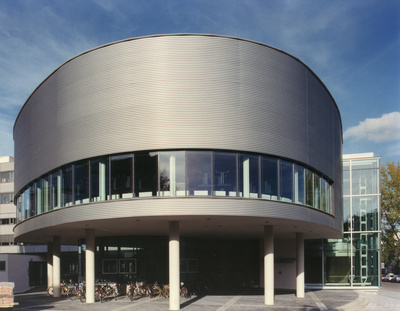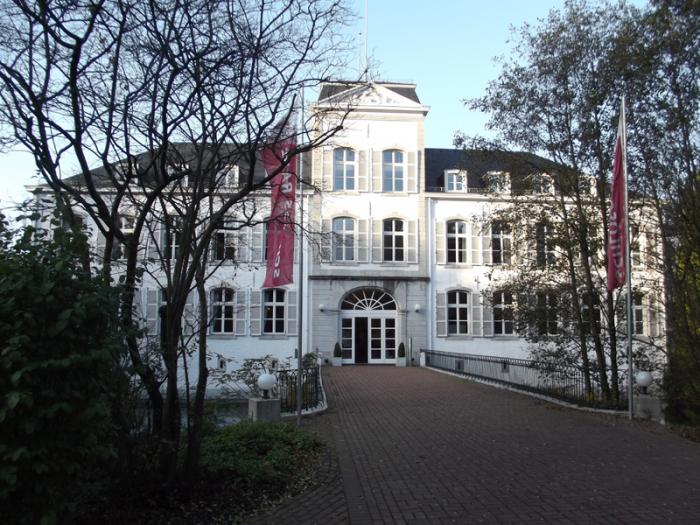SponsorsBack to top
We thank the following companies for their generous support of the Artificial Vision Symposium 2019 in Aachen:

Pixium Vision
74 rue du Faubourg Saint-Antoine, 75012 Paris, www.pixium-vision.com
Sponsoring: € 5.000,–
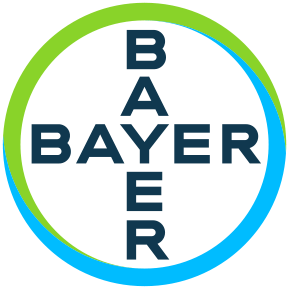
Bayer Vital GmbH
Geb. K56, 51366 Leverkusen, www.gesundheit.bayer.de
Sponsoring: € 2.500,–
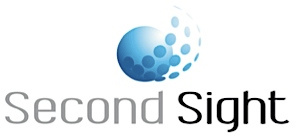
Second Sight Medical Products (Switzerland) Sàrl
EPFL Innovation Park A, 1015 Lausanne, Switzerland, www.secondsight.com
Sponsoring: € 2.000,–

D.O.R.C. Deutschland GmbH
Schießstraße 55, 40549 Düsseldorf, www.dorc.eu
Sponsoring: € 1.800,–
The Deutsche Forschungsgemeinschaft e.V. will support the meeting with € 10.000,–
The financial support of these eight companies adds to the budget of Artificial Vision 2019 financing the costs of this conference, i.e. printing costs, postage, bank fees, rental costs of the congress venue, technical equipment, catering, travel expenses and accommodation for invited speakers, web design, insurances, certification fees, PCO etc.
Aachen, and the euregio areaBack to top
The city of Aachen is the most western city in Germany close to the borders of The Netherlands and Belgium. Aachen has approx. 250,000 inhabitants and the University and the University Hospital are the largest employer here in Aachen. Aachen has a long history and you can still see significant witnesses of a time long ago, such as the cathedral with its beautiful and mystic octagon and the astonishing gothic city hall. But Aachen with its important historic phase of Charlemagne today is a young and vivid town with its university and the many students from various countries in the world. RWTH Aachen University is one of the leading technical universities in Europe with a strong focus on mechanical and electrical engineering but also on information technology and natural sciences. Aachen forms a cultural, industrial and also scientific cross border triangle together with Liege in Belgium and Maastricht in The Netherlands forming the EUREGIO area. Many cooperations exist between the institutions within this area.
The Artificial Vision Meeting is set to the mid of December. Although the weather might not be perfect – in fact it could be cold and maybe rainy – it is worth to visit the cosy Christmas Market in the city. You should try “Printen”, a local biscuit speciality with a high “addiction” potential.
Aachen is also not far away from Cologne with its huge cathedral and its several concert halls and the province capital Düsseldorf with its important art and fashion scene. You can also reach the European capitals Paris and Brussels by high speed train within a few hours.
There are also many more reasons to come and visit Aachen and we are looking forward to see you.
PrefaceBack to top
The treatment of blindness caused by degenerative or dystrophic retinal diseases
remains an unsolved medical but also social problem.
Although significant progress has been made, e.g. with the approval of the first
gene therapy for RPE65 associated Leber’s Congenital Amaurosis (LCA) on one
hand or with the fabrication and implantation of retinal implant systems in RP
patients on the other hand, there is still a bumpy road ahead.
Several years ago the implantation of retina implant systems sounded as a success story. Totally blind subjects were able to perceive light, to locate and avoid obstacles, some were even able to slowly read large letters and to identify high contrast objects. However, this success was not well recognized in the ophthalmic community and in the patient community. The number of implantations did not meet the expectations and calculations of the companies. As a result, e.g. Retina Implant AG stopped fabricating the Alpha AMS device and Second Sight also stopped their Argus II activities. Clinical results in a larger scale are now expected from trials with the subretinal photovoltaic device of PIXIUM and also from the cortical stimulation device ORION. Other activites are expected from the Australian and from the Japanese consortium and possibly also from other groups.
However, we learned a lot from the experiences with the early implants. Many research projects are still running to better understand the mechanisms of retinal degeneration, how to interfere with these mechanisms, what components of retinal or cortical implants can be improved or optimized to achieve a better outcome. New projects are planned to solve more general bottlenecks of retinal stimulation using implants.
The Artificial Vision 2019 Conference in Aachen, Germany serves as an interdisciplinary forum bringing together researchers of all disciplines involved in the design, planning, fabricating and testing of visual prostheses as well as scientists from the neurobiological world giving insights in the process of visual system degeneration. We also welcome the participation of patients in this conference to better understand their needs and expectations.
This conference is a fully open, non-invitational meeting. For young researchers we will have a number of travel grants available. The conference is supported by the German Research Association (Deutsche Forschungsgemeinschaft, DFG).
Together with my colleagues Wilfried Mokwa (RWTH), Frank Müller and Andreas Offenhäusser (RC Julich) I cordially invite you to come to Aachen.
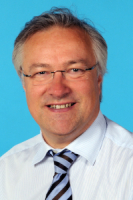
Peter Walter
Department of Ophthalmology
University Hospital Aachen
RWTH Aachen University, Medical Faculty
General InformationBack to top
Scientific programme |
Prof. Dr. Peter Walter |
|||||||||
Organization |
Congress-Organisation Gerling GmbH |
|||||||||
Venue |
Center for Technology Aachen Europaplatz |
|||||||||
Lecture hall |
Auditorium |
|||||||||
Official Language |
English |
|||||||||
Date |
Friday, 13th December, 2019, 13:00 h – 18:15 h |
|||||||||
Opening hours congress office |
Friday, 13th December, 2019, 12:00 h – 18:15 h |
|||||||||
Opening hours industrial exhibition |
Friday, 13th December, 2019, 13:00 h – 18:15 h |
|||||||||
Online Registration |
||||||||||
Hotel Booking |
See hotel on the registration form (or online) |
|||||||||
|
Attendance Fee
|
*PhD Students and residents must supply a letter of verification as proof of training. The letter has to be sent to the congress organization prior to the meeting. The attendance fee covers the costs for coffee breaks, lunch, and the conference dinner (accompanying person EUR 50,–). Incl. VAT and excl. foreign transfer fees. |
|||||||||
Payment |
by bank transfer (bank details are quoted on your confirmation and invoice. Please do not transfer money without noting your invoice number!) PayPal or by credit card: VISA, AMERICAN EXPRESS, MASTERCARD |
|||||||||
Important notes for participants |
The attendance fee covers the costs for coffee breaks, lunch, and the conference dinner. If you register late or on-site we cannot guarantee for lunch and participation in the social program. You are encouraged to apply for the meeting either online, by mail or by fax. Cancellation for the symposium has to be made via e-mail or via fax (+49 (0) 2 11 / 59 35 60) by December 9th, 2019. In any case an administration fee of EUR 22,– has to be paid. After this date no refunds can be made. Changes, errors and misprints excepted. |
|||||||||
CME-Points |
The Symposium is registered at the Ärztekammer Nordrhein providing CME-points for the German Continuing Medical Education System. Please bring your Barcode Labels and we will register you for CME-point documentation. An equivalent Certificate of Attendance will be given to you upon on-site registration. |
Information for speakersBack to top
Presentations |
Lecture: 15 min presentation incl. discussion |
Projection |
Microsoft PowerPoint presentation on CD/DVD/USB-Stick
or own notebook. |
Social eventBack to top
Friday, 13th December, 2019
Conference Dinner
20:00 h |
Schloss Rahe
Price per person (incl. dinner and drinks): |
Scientific ProgrammeBack to top
Friday, 13th December, 2019
13:00 h |
Come Together |
14:00 h |
Prof. Dr. med. Peter Walter
Univ.-Prof. Dr. rer. nat. Stefan Uhlig
Dr.-Ing. Damian Dudek |
14:40 h |
1st Session Retinal Degeneration – Models & Mechanisms
Chair: |
01 Lecture |
Hamed Shabani1
, M. Sadeghi1
, M. Hosseinzadeh2
, E. Zrenner1
, D.L. Rathbun1 |
02 Talk |
Nicholas Hempel1, B. Denecke2, J. Weis3, F. Mueller4, P. Walter1,
S. Johnen1 |
03 Talk |
Alfred Yamoah1, H. Guo1, P. Tripathi1, I. Katona1, P. Walter2, S. Johnen2,
F. Müller3, A. Goswami1, J. Weis1 |
04 Lecture |
Seong-woo Kim1, K.-E. Choi1, Y.S. Goo2 |
05 Lecture |
Yong Sook Goo1, S.-W. Kim2 |
06 Lecture |
Jana Gehlen1, S. Esser1, K. Schaffrath2, S. Johnen2, P. Walter2, F. Müller1 |
07 Lecture |
Günther Zeck1, A. Corna1, P. Ramesh2, J. H. Macke2 |
08 Talk |
Claudia Ingensiep, K. Schaffrath, P. Walter, S. Johnen |
16:00 h |
Coffee break in the industrial exhibition |
16:30 h |
2nd Session Technology of Visual Prosthetic Devices
Chair: |
09 Lecture |
Marta J.I. Airaghi Leccardi1, N.A.L. Chenais1, C.P.J. Vila1,
T.J. Wolfensberger2, and D. Ghezzi1 |
10 Lecture |
Changhoon Baek, J. Kim, J. Yi, Y. Lee, J. Kim, H. Jeong, J. Seo |
11 Lecture |
Yasuo Terasawa1,2, H. Tashiro2,3, J. Ohta2 |
12 Lecture |
Sohee Kim, H.W. Seo, N. Kim |
13 Lecture |
Kim Young-jin, H. Jung, S.-A Lee |
14 Lecture |
Andreas Erbslöh1, R. Viga1, K. Seidl1,2, R. Kokozinski1,2 |
15 Lecture |
Charles Yu, V Fan, I Vieira |
18:15 h |
End of day I |
20:00 h |
Conference dinner, Castle Rahe, Aachen |
Saturday, 14th December, 2019
08:15 h |
3rd Session Preclinical data on stimulation and new devices
Chair: |
16 Lecture |
Peter Stalmans (Department of Ophthalmology, UZLeuven, Leuven/B) |
17 Lecture |
Mahmut E. Celik1, D. Nguyen2, E. Scorsone3, L. Rousseau4, S. Picaud2 |
18 Lecture |
Naïg Chenais, M.A. Leccardi, D. Ghezzi |
19 Lecture |
Viviana Rincón Montes1, J. Gehlen2, K. Srikantharajah1, F. Müller2,
A. Offenhäusser1 |
20 Lecture |
Paul Werginz1,3, V. Raghuram2,3,4, S.I. Fried2,3 |
21 Talk |
Tibor Karl Lohmann1, K. Schaffrath1, S. Baumgarten1, J. Seifert1,
P. Raffelberg2 , F. Waschkowski3, R. Viga2, R. Kokozinski2,4, S. Johnen1,
W. Mokwa3, P. Walter1 |
22 Lecture |
Takeshi Morimoto1, T. Miyoshi2, T. Saitoh3, K. Ito3, M. Ozawa3,
K. Nishida4, T. Fujikado5 |
23 Lecture |
Vivien Gaillet1, A. Cutrone2, F. Artoni2,3, P. Vagni1, A.M. Pratiwi1,
S.A. Romero Pinto1, D. Lipucci Di Paola2, S. Micera2,3, D. Ghezzi1 |
24 Talk |
Martina Kropp1,2, D. Ghezzi3, A. Conti1,2, C. Jonescu-Cuypers1,
G. Thumann1,2 |
10:20 h |
Coffee break in the industrial exhibition |
10:50 h |
4th Session Clinical Experiences with Retinal Stimulation and Implants
Chair: |
25 Talk |
Ronja Jung1,2, K. Stingl1, K. Stingl2, C. Kelbsch2, H. Wilhelm1, T. Peters1,
B. Wilhelm1, T. Strasser1,2, P. Richter1 |
26 Lecture |
David A.X. Nayagam1,2, M.A. Petoe1,3, S.A. Titchener1,3, M. Kolic4,
E.K. Baglin4, C.J. Abbott4,5, C.D. Luu4,5, S.B. Epp1, P. Thien1, J. Kvansakul1,3,
M.N. Shivdasani6,1, W.G. Kentler1, O. Burns1, J. Villalobos1, R. Millard1,
P. Seligman1, J. Yeoh4, R.J. Briggs8, R.K. Shepherd1,3, C.E. Williams1,3,
P.J. Allen4,5 |
27 Lecture |
Penelope J. Allen1,2, D.A.X. Nayagam3,4, S.B. Epp3, C.D. Luu1,2,
N. Barnes7,8, M. Kolic1, K. Young1, E.K. Baglin1, C.J. Abbott1,2, R.J. Briggs5,
J. Yeoh1, W.G. Kentler6, S.A. Titchener3, M.A. Petoe3,4, C.E. Williams3,4 |
28 Lecture |
Caroline Van Cauwenbergh1, D. Nerinckx1, L Spielberg1,
L. Hebbelinck1, A. Vandesteene1, E. Van De Ginste1, W. Schrauwen2,
I. Joniau1, L. Wouters1, B.P. Leroy1 |
29 Talk |
Kim Schaffrath, T. Lohmann, S. Baumgarten, H. Schellhase, P. Walter |
30 Talk |
Mahi M.K. Muqit1,2, J.P. Hubschman3, S. Picard4, D.B. McCreery5,
J.C. van Meurs6,7, C. Nouvel-Jaillard4, C-M. Fovet8, P. Hantraye8,
J. Sahel4,9,10,11, J.N. Martel10, Y. Le Mer11 |
31 Lecture |
Yannick Le Mer1, S. Mohand-Saïd2, M. Muqit3, J. Sahel4, D. Palanker5 |
12:20 h |
Lunch break in the industrial exhibition |
13:10 h |
5th Session Cortical Prosthesis: The next step?
Chair: |
32 Lecture |
Patrick Degenaar, Y. Liu, A. Soltan |
33 Talk |
Yu Liu, P. Degenaar |
34 Lecture |
Eduardo Fernandez |
35 Lecture |
Shelley Fried, S.W. Lee, S.B. Ryu |
36 Talk |
Walter Gallo Gomez, Y. Pecho Trigueros |
37 Lecture |
Katerina Eleonora K. Rassia1, J.S. Pezaris2,3 |
14:30 h |
Coffee break in the industrial exhibition |
15:00 h |
6th Session Perception in Artificial Vision?
Chair: |
38 Talk |
Kazim Hilmi Or |
39 Lecture |
Penelope J. Allen1,2, D.A.X. Nayagam3,4, C.D. Luu1,2, N. Barnes7,8,
M. Kolic1, K. Young1, E.K. Baglin1, C.J. Abbott1,2, R.J. Briggs5, J. Yeoh1,
W.G. Kentler6, J. Kvansakul3, S.A. Titchener3, M.A. Petoe3,4,
C.E. Williams3,4 |
40 Talk |
Samuel A. Titchener1,2, M.A. Petoe1,2, J. Kvansakul1,2,
M.N. Shivdasani3,1, J.B. Fallon1,2, D.A.X. Nayagam1,4, S.B. Epp1,
C.E. Williams1,2, N. Barnes5,6, W.G. Kentler7, M. Kolic8, E.K. Baglin8,
C.J. Abbott8,9, C.D. Luu8,9, P.J. Allen8,9 |
41 Lecture |
Nadia Paraskevoudi1,2, J.S. Pezaris3,4 |
42 Lecture |
Stefan Pollmann, C. Nath, L. Wang |
43 Lecture |
Gislin Dagnelie1, A. Kartha1, R. Sadeghi1,2, C. Bradley1, D. Geruschat1 |
16:20 h |
7th Session Patients, Companies and Health Care Systems
Chair: |
44 Lecture |
Vasiliki Karadima1, J.S. Pezaris2,3 |
45 Lecture |
Eberhart Zrenner1, R. Rubow2, A. Stett3 |
16:50 h |
Round Table – The Future of Visual Prosthetics |
17:15 h |
Closure remarks – farewell reception |
AuthorsBack to top
|
Marta J.I. Airaghi-Leccardi Penelope J. Allen 32 Gisborne Street Changhoon Baek Mahmut E. Celik Naig Chenais Gislin Dagnelie Patrick Degenaar Damian Dudek Andreas Erbslöh Eduardo Fernandez Shelley Fried Vivien Gaillet Walter Gallo Gomez Jana Gehlen Yong-Sook Goo |
Nicholas Hempel Claudia Ingensiep Ronja Jung Vasiliki Karadima Sohee Kim Youngjin Kim KBIO Seong-Woo Kim Martina Kropp Yannick Le Mer Yu Liu Tibor Karl Lohmann Takeshi Morimoto Frank Müller Mahi M.K. Muqit David A.X. Nayagam Kazim Hilmi Or Nadia Paraskevoudi |
Stefan Pollmann Katerina Eleonora K. Rassia Viviana Rincón-Montes Kim Schaffrath Hamed Shabani Peter Stalmans Yasuo Terasawa Samuel A. Titchener Stefan Uhlig Caroline Peter Walter Paul Werginz Alfred Yamoah Charles Yu Günther Zeck Eberhart Zrenner |
ExhibitorsBack to top
|
Allergan GmbH Bayer Vital GmbH D.O.R.C. Deutschland GmbH Heidelberg Engineering GmbH Novartis Pharma GmbH |
Roland Consult Stasche & Finger GmbH Santen GmbH Ursapharm Arzneimittel GmbH ZEISS |
Your way to AachenBack to top
International Airports. High Speed Train System
From Frankfurt: Take the ICE High Speed train from Frankfurt Airport Station to Cologne Main Station (approx. 1h) and continue to Aachen Main Station (approx. 45 – 60 min).
From Düsseldorf: Take the train from Düsseldorf Airport Station to Düsseldorf Main Station (approx. 10 min) and than continue to Aachen Main Station (approx. 1.5 h).
From Cologne: Take the train from Cologne Airport Station to Cologne Main Station (approx. 15 min) and than continue to Aachen Main Station (approx. 45 – 60 min).
From Aachen Main Station take a taxi to Technologiezentrum at Europaplatz
By car
From Frankfurt Airport you can drive highway A3 to Cologne and then change to A4 direction to Aachen. At AK Aachen please change to A544 direction Aachen Europaplatz (approx. 3 h).
From Düsseldorf Airport. A52 ➔ A61 ➔ A44. Then A544 direction Europaplatz (approx. 95 km, 1 h)
From Cologne Airport. Take the A59, then change to A599 followed by A4 towards Aachen. Then A544 direction Europaplatz. (approx. 82 km, 1 h)

Meeting address
Technologiezentrum
Europaplatz.
Dennewartstraße 25-27, 52068 Aachen, Germany.


